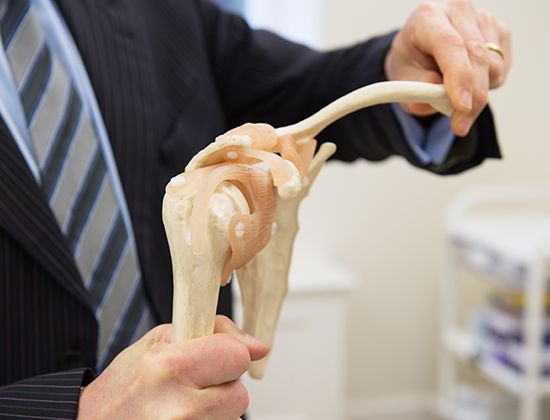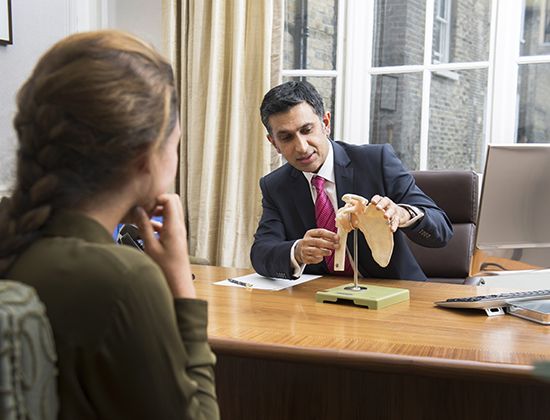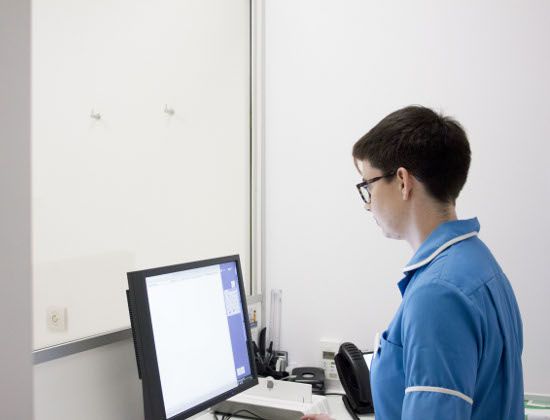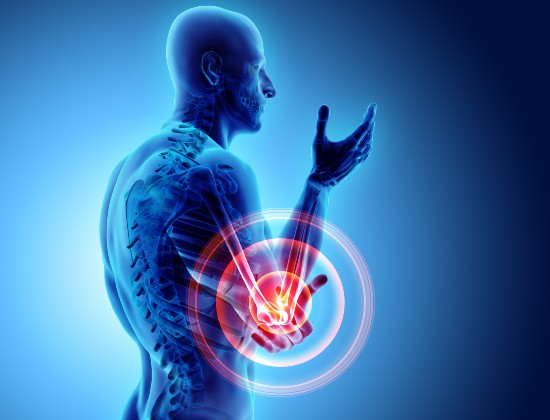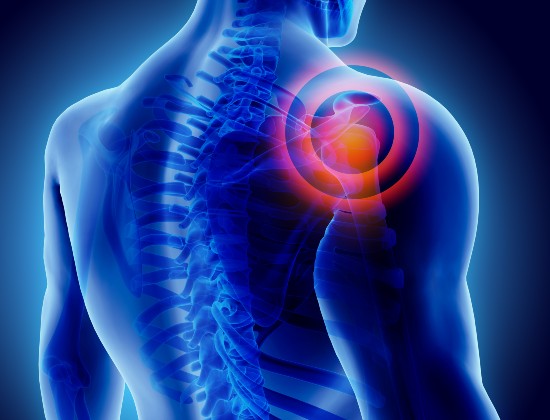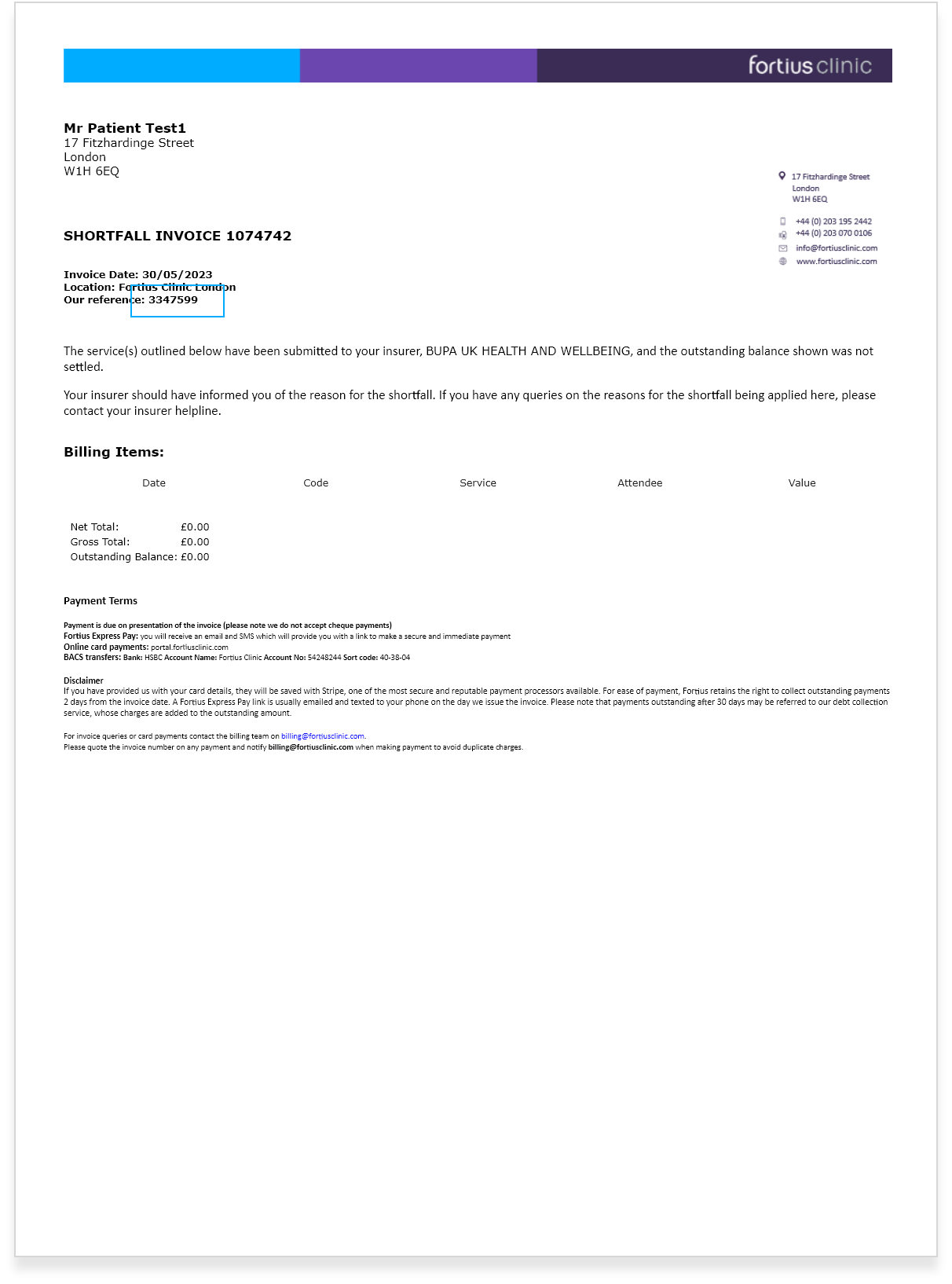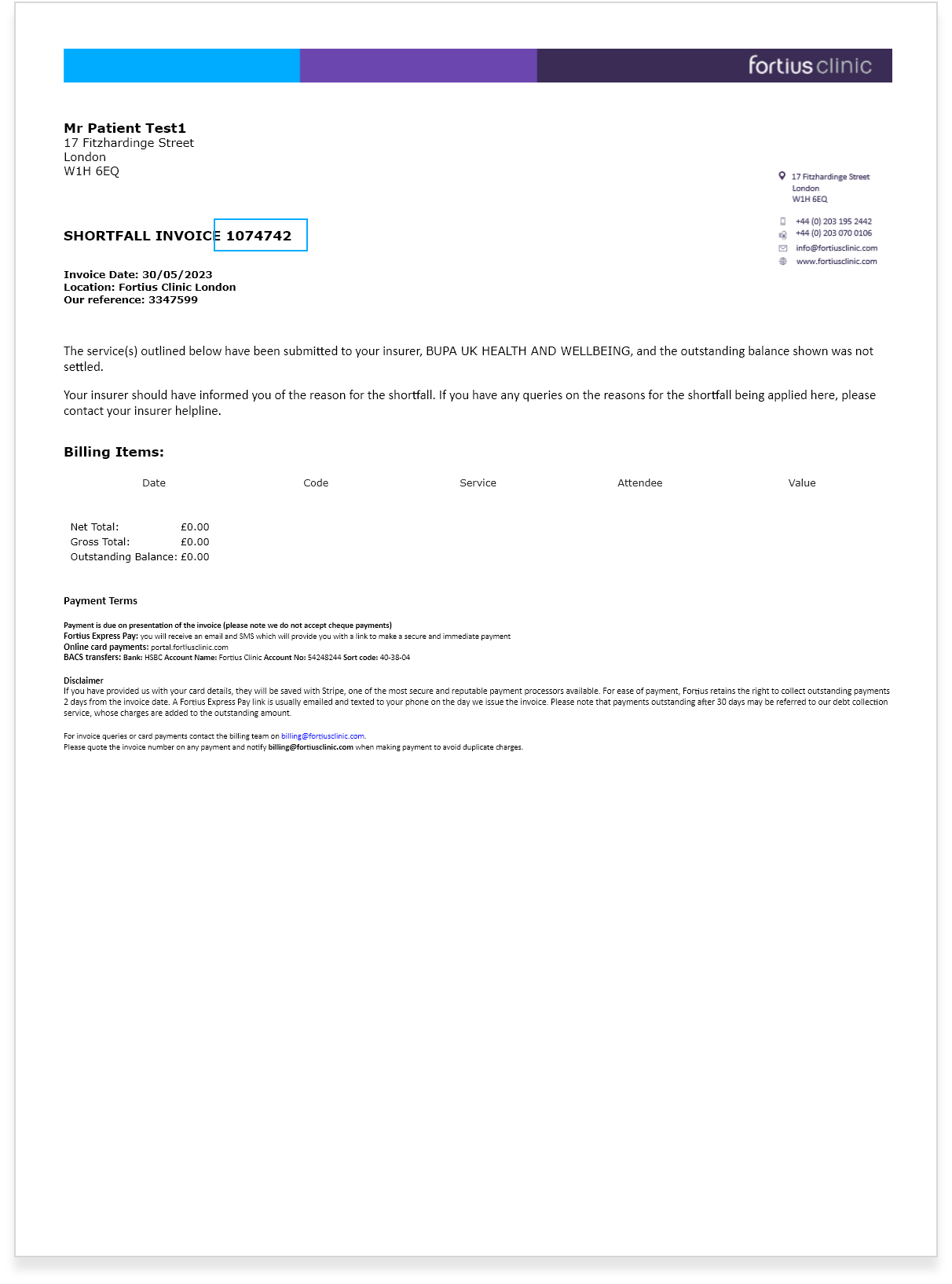Glenoid labrum tear
Where is the glenoid labrum?
Labrum is firm fibrous tissue surrounding the rim of the shoulder socket/cup (the glenoid cavity) which helps to stabilise the shoulder joint.
How is a tear caused?
Tears of the glenoid rim are often connected with other shoulder injuries, such as a shoulder dislocation or subluxation (see above) and can be either above (superior) or below (inferior) the middle of the glenoid socket. The tear itself can be caused by a repetitive shoulder motion, and is common in athletes who throw or weightlifters. It can also be caused by an injury such as:
- Falling on the arm when it is outstretched
- A forceful injury to the shoulder
- Lifting something that is too heavy
What are the symptoms?
- Pain, particularly when reaching overhead
- Locking of the shoulder or sensations of ‘catching’ or ‘grinding’
- Shoulder instability (see below)
- Loss of shoulder mobility and strength
How is it diagnosed?
Having asked questions about how your shoulder was injured and carefully examining the area, the specialist will usually check the stability of the shoulder as well as your range of movement and pain levels. You may also have X-rays to rule out other problems; however, the X-rays won’t show any damage to the glenoid labrum itself, as it is soft tissue, so you will usually be offered an MRI or CT scan to check the extent of any damage.
How is it treated?
Non-operative treatment: this includes resting, along with taking anti-inflammatory medication, if advised by your doctor, to relieve your symptoms. You may also be given exercises to strengthen the rotator cuff muscles.
Surgery: this is usually carried out arthroscopically; the type of surgery depends on the severity of the tear and to what extent it affects the rim and the biceps tendon:
- If the tear only affects the rim, this means the shoulder is still stable and the surgeon will normally remove the torn flap and correct any other associated problems
- If the tear extends to include the biceps tendon or if the tendon is detached, this can cause instability; in this case, the procedure will involve repairing and reattaching the tendon.
- If the tear is below the middle of the socket, this can also make the shoulder unstable so in this case the surgeon will reattach the ligament and fold over tissues in the shoulder socket to tighten the shoulder and help keep it stable
How long does it take to recover from surgery?
You will usually wear a sling for a few weeks and be advised to carry out some gentle exercises to increase your strength, flexibility and range of movement. You may be able to start exercises that are specific to your sport around six weeks after surgery; however, it may take three or four months for the shoulder to heal fully.
Important: This information is only a guideline to help you understand your treatment and what to expect. Everyone is different and your rehabilitation may be quicker or slower than other people’s. Please contact us for advice if you’re worried about any aspect of your health or recovery.
